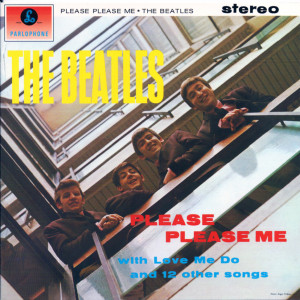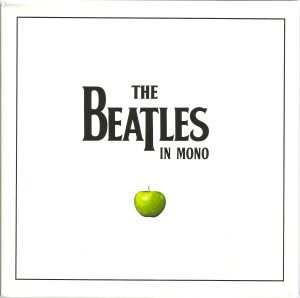Because the Beatles mean so much to so many people, the success of remastering the Compact Discs was never a foregone conclusion. Among them are devotees who make the most militant train-spotter seem positively blasé. Newly available are the individual albums, each beautifully repackaged with a detailed booklet and video documentary clip, or you can buy them all at once in either of two box sets. One contains 217 songs in stereo and the other provides 185 tracks in mono, spread over a total of 29 CDs. But the fanatics’ knives are out, as they were 22 years ago, when the Beatles’ music first reached CD.
In 1987, attacks on the CDs were warranted because the sound was thin and weak compared to the rich glory of LPs. To be fair, CD back then was brand-new, and the player and disc manufacturers were on steep learning curves. Dealing with purists who will always prefer vinyl is just part of what the engineers at EMI’s Abbey Road had to accommodate.
Their task was to clean up the sound by returning to the original master tapes, processing the material to suit CD in ways not available 22 years ago. (‘Remastering’ is not to be confused with ‘re-mixing’, which changes the musical content.) To appreciate the magnitude of the challenge, think of it as on a par with an art restorer cleaning a begrimed Turner: it is simply the most valuable body of music ever recorded. Blessedly, the tapes were treated with the utmost care, and remain in superb condition. At the hands of the most skilled, capable and sympathetic crew Abbey Road could muster, the albums were remastered with intelligence and finesse, in the very building where they were recorded decades ago.
As promised , the boxes arrived from Amazon on 9 September. Hands shaking, I peeled off the cellophane, studied each disc. I listened first to the stereo box, then the mono, comparing the new CDs to original vinyl and the 1987 CDs. This Beatle-worshipping Luddite wanted the LPs to remain sacrosanct. But surprises were in store.
There were reassurances that everything undertaken during the remastering sessions was subtle rather than drastic. Understatement! The final results can be described with one word: ‘revelatory’. I have heard the LPs so often than I know when a chair will squeak or Ringo will brush a cymbal. Yet, from the first note of Please Please Me, I realised that the experience would be like seeing a fresh print of Metropolis after a lifetime of viewing the faded and the scratched: new enough to cause much deliberation.
Numerous artists provided substantially different mixes for their mono and stereo releases during the 1960s. In the UK – and British editions matter most to purists – the Beatles issued every LP except for Abbey Road and Let It Be in mono, while stereo was applied to all of the albums except for the first four: Please Please Me, With the Beatles, A Hard Day’s Night and Beatles For Sale. These were only intended for mono because, although recorded on two-track machines, stereo would place the vocals to the extreme right and the instruments hard left – an unnatural sound with nothing in the middle.
When the CDs were released in 1987, the decision was made to release that quartet of albums in mono. What the new stereo remasters show is that the hard left/right sound only affected the first two albums, not the first four, and even then it was hardly off-putting. With the new A Hard Day’s Night, one realises that the stereo mixes were satisfactory by any standards. Now we are able to hear the first four in true stereo, from the master tapes.
Two revelations emerge from the early discs in stereo, the first being that the Beatles’ rhythm section of Paul McCartney on bass and Ringo Starr on drums was so formidable a foundation to the music that criticism of either – and Ringo has suffered this more than Paul – has been rendered meaningless. Every intro, every fill, every snap of the snare accents perfectly the guitars and vocals, the new transfers having sonic impact rarely heard before.
Equally, McCartney’s bass-work was as fluid and inventive as anything being played at the time; the new CDs let you focus on his musicianship with greater clarity than any other format. Listen to early tracks with odd rhythms, such as ‘Anna (Go To Him)’ or ‘Please Mr Postman’, to understand that the instrumental polish and the power were there long before the Beatles revealed their own compositional skills. They were, in 1962, instrumentally so far ahead of the rest that their superiority is evident even through cover versions.
With A Hard Day’s Night and Beatles For Sale, the performances start to dazzle. It’s hard to believe that George Harrison was barely 20 at this time, yet his guitar playing was equal to the very best available from seasoned session players: slick, fast, original. And as the Beatles’ skills grew more polished, inventive and daring, so, too, was recording technology advancing at a dizzying pace. Stereo effects became more ‘real’ and less distracting. As one reaches the later albums, the gains of remastering are less obvious because the sound of the originals is so much closer to modern tastes.
It’s the second revelation, however, that begs the question: Which is ‘better’? Mono or stereo? For a practical reason, it’s worth asking: only the stereo albums will be offered as individual CDs for those who wish to buy the albums one at a time. Those who do want the mono versions have to move quickly, because the box set is a limited edition.
Without doubt, the mono mixes are different enough to inspire collectors to shell out for both boxes. And some would argue that the first four in mono, despite sterling remastering into stereo, are the more ‘authentic’. But Please Please Me in stereo provides a definitive demonstration to prove to sceptics whether or not the monos deserve consideration.
Because the original two-track tapes of ‘Love Me Do’ and ‘PS I Love You’ no longer exist, they’re in mono on the stereo disc. So, when your stereo copy of Please Please Me reaches tracks 8 and 9, the entire sonic character of the changes: out bursts the most vibrant, rich, cohesive, in-your-face mono delivery. It is the most convincing argument ever for having the early tracks in mono. The sound virtually leaps from the speakers.
After listening to both boxes, I reaffirmed by belief that the Beatles are the greatest musicians since recording began. I also discovered that the remastering is an epic achievement. I acknowledged that the original vinyl may be truer to the material, but then so is watching The Prisoner on a 14in black-and-white TV. It occurred to me that the new CDs must be approached as an entirely new listening experience. And I accepts that the LPs and the new CDs are NOT mutually exclusive, nor are mono and stereo.
Simon Cowell announced last week that the Beatles would never have won The X Factor. His remark indicates how the passage of time has lessened the awe in which the Beatles are held. They’re taken for granted by 30-year-olds who don’t realise that Oasis was nothing more than inferior Beatle-wannabees. One music authority pointed out that the Beatles went from ‘Love Me Do’ to ‘Tomorrow Never Knows’ in four years. They released 13 albums in seven years. They rewrote the entire disciplines of song-writing, performing and recording popular music, along the way affecting fashion, politics, cinema, poetry, sexual mores and, yes, even hair styles. And now there are two box sets oozing with genius to prove it.
(The Express, September 2009)
























